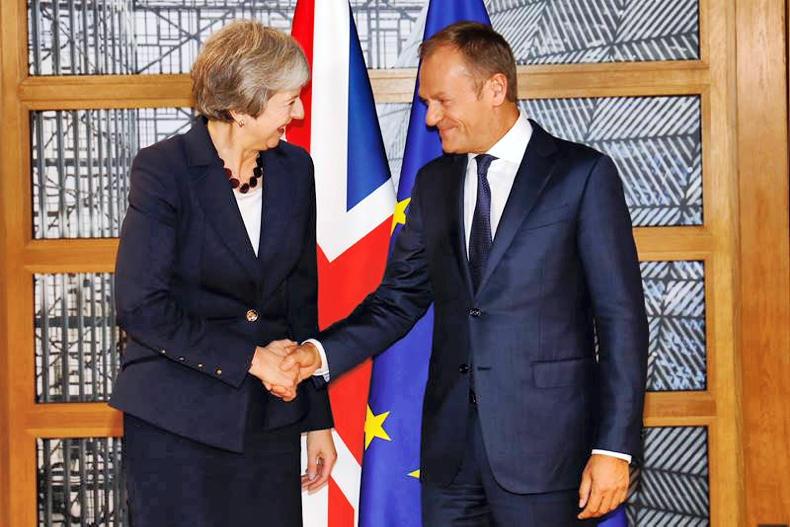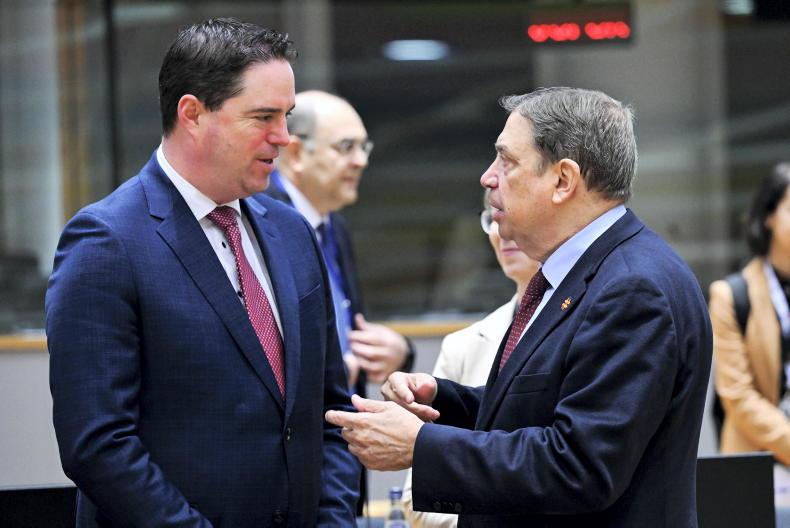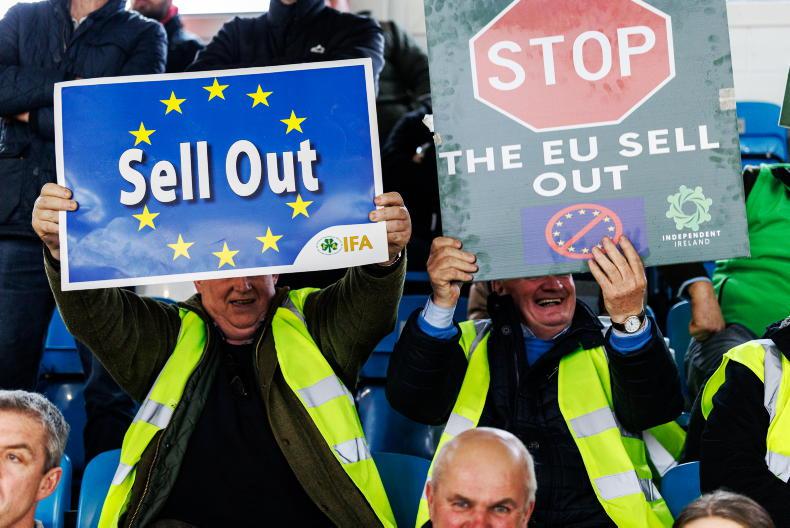After several days of intense focus on the Irish border Brexit backstop, the debate moved on to extending the transition period after the UK leaves as a way of meaning the backstop is never needed.
At present, the plan is that if the withdrawal agreement is agreed, the UK would move into the transition period between 30 March 2019 and the 31 December 2020, during which the long-term relationship between the UK and EU would be tHrashed out.
The belief in Brussels this morning was that if there was more time to put this in place, it could remove the need for the backstop altogether and break the present logjam.
This could be the answer but it would mean finding a way that keeps Northern Ireland aligned with the EU on customs and single-market issues.
Despite negotiations around keeping these low-profile and unobtrusive, the Democratic Unionist Party held firm that these were separating Northern Ireland from the rest of the UK and therefore unacceptable.

UK Prime Minister Theresa May at the EU Council in Brussels on 17 and 18 October.
Norway for now?
An alternative view finding some traction in Westminster today is that the UK move into what is described as the Norway model for a transition period. This is the European Economic Area (EEA) which as well as Norway includes Iceland and Lichtenstein and basically means these countries are aligned to the EU without being members.
The attraction of this model is that it keeps the status quo in trade
The “Norway for now” idea would mean that the UK technically complies with leaving the EU and subscriptions to the budget would drop considerably from what the UK paid as a member.
The attraction of this model is that it keeps the status quo in trade, reduces financial contribution but means present rules and restrictions remain and the UK becomes a rule taker without a seat at the table that decides the rules.

Taoiseach meeting with UK Prime Minister in margins of EU Council in Brussels.
Hence this model is roundly criticised as tying the UK to the EU and not giving the flexibility on trade or control of migration. It would however create a breathing space with a reduced financial contribution to the EU, hence the shorthand “Norway for now".
Kicking down the road doesn't solve problem
It is understood from briefings by the UK officials in Brussels however than any extension of time would require the EU to accept the UK concept of the backstop, ie that the UK couldn't be in anyway divided. This is unlikely to find favour in either Ireland or Brussels so what benefit that accrues is likely to be limited.
After several days of intense focus on the Irish border Brexit backstop, the debate moved on to extending the transition period after the UK leaves as a way of meaning the backstop is never needed.
At present, the plan is that if the withdrawal agreement is agreed, the UK would move into the transition period between 30 March 2019 and the 31 December 2020, during which the long-term relationship between the UK and EU would be tHrashed out.
The belief in Brussels this morning was that if there was more time to put this in place, it could remove the need for the backstop altogether and break the present logjam.
This could be the answer but it would mean finding a way that keeps Northern Ireland aligned with the EU on customs and single-market issues.
Despite negotiations around keeping these low-profile and unobtrusive, the Democratic Unionist Party held firm that these were separating Northern Ireland from the rest of the UK and therefore unacceptable.

UK Prime Minister Theresa May at the EU Council in Brussels on 17 and 18 October.
Norway for now?
An alternative view finding some traction in Westminster today is that the UK move into what is described as the Norway model for a transition period. This is the European Economic Area (EEA) which as well as Norway includes Iceland and Lichtenstein and basically means these countries are aligned to the EU without being members.
The attraction of this model is that it keeps the status quo in trade
The “Norway for now” idea would mean that the UK technically complies with leaving the EU and subscriptions to the budget would drop considerably from what the UK paid as a member.
The attraction of this model is that it keeps the status quo in trade, reduces financial contribution but means present rules and restrictions remain and the UK becomes a rule taker without a seat at the table that decides the rules.

Taoiseach meeting with UK Prime Minister in margins of EU Council in Brussels.
Hence this model is roundly criticised as tying the UK to the EU and not giving the flexibility on trade or control of migration. It would however create a breathing space with a reduced financial contribution to the EU, hence the shorthand “Norway for now".
Kicking down the road doesn't solve problem
It is understood from briefings by the UK officials in Brussels however than any extension of time would require the EU to accept the UK concept of the backstop, ie that the UK couldn't be in anyway divided. This is unlikely to find favour in either Ireland or Brussels so what benefit that accrues is likely to be limited.















SHARING OPTIONS